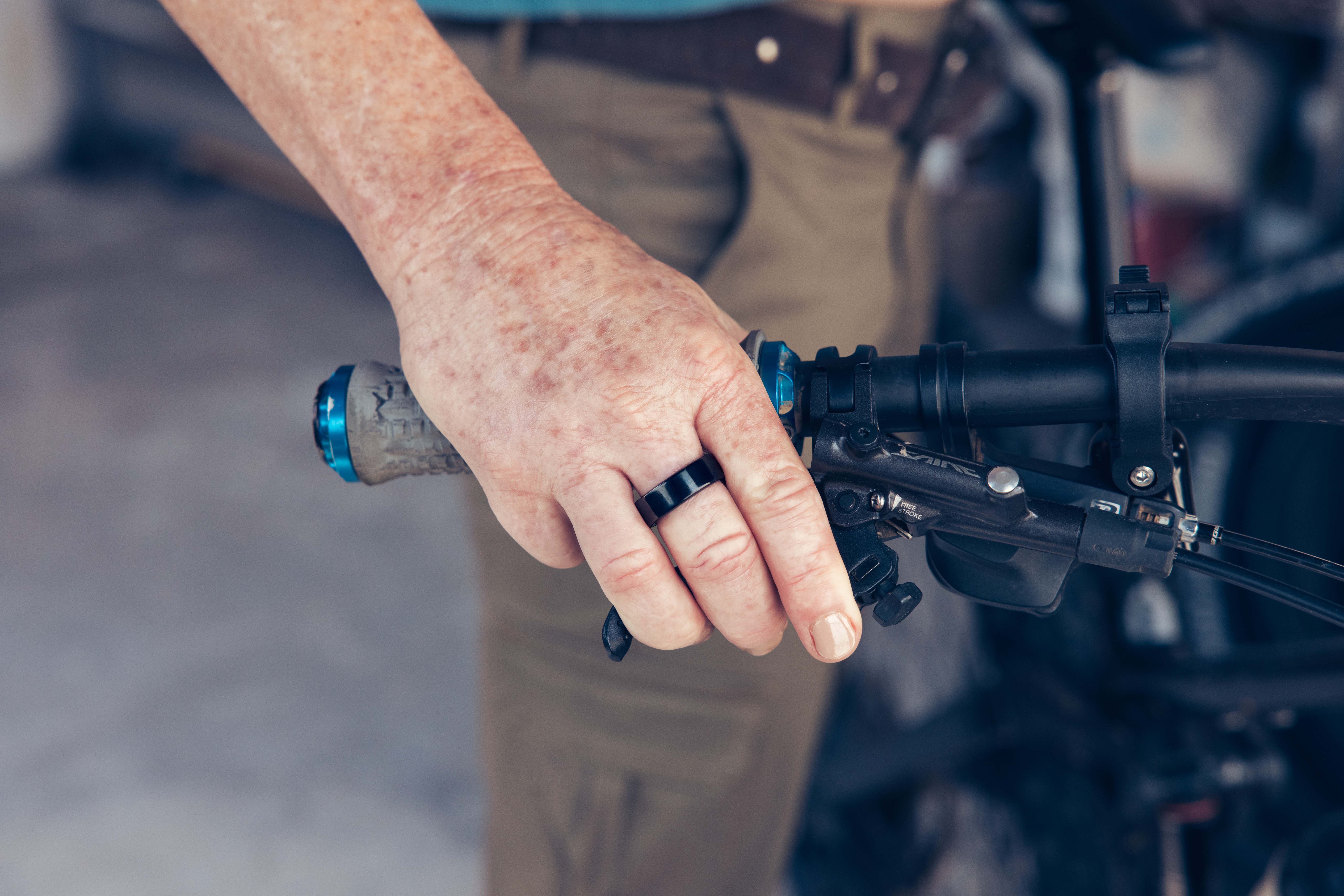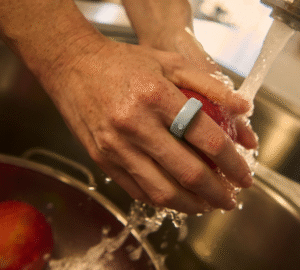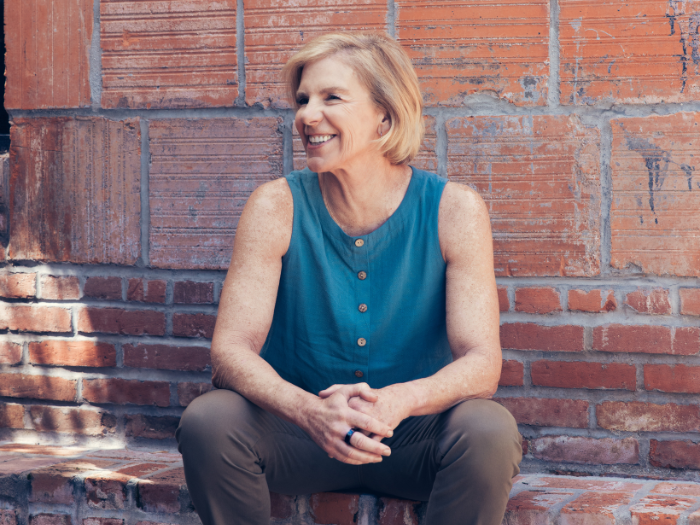Who: Julie D., 56, San Diego
Helpful Oura tip: On heavy training days, Julie makes sure to prioritize time for a nap, which gives her Readiness Score a much-needed boost.
A swimmer in her youth, Julie swam competitively at Louisiana State University. After college, she continued to swim, but it was taking a toll: “My need to move was still strong, but I was a water mammal plagued with injuries!”
She began biking as a way to cross-train, which led her to compete in triathlons at the age of 40. “I discovered that swimming, biking, and running together created the perfect harmony for my not-so-graceful athleticism,” she says. “It was like a match made in endurance heaven.”
Julie has qualified for the Ironman World Championships in Kona an impressive eight times, and she achieved an age group win at the Ironman World Championships in 2022.
Below, we dive into what keeps Julie’s active lifestyle going strong into her 50s and what Oura has taught her about recovery and her health overall.
We previously spoke with Julie along with her father, Jim, 91, about how Oura helps them both to balance their active lifestyles with recovery. Check out their heartwarming interview here.
 What led you to Oura?
What led you to Oura?
I originally purchased Oura Ring because of its advanced sleep-tracking capabilities, heart rate variability (HRV) monitoring, and recovery analysis.
As an endurance triathlete, I aim to push my physical limits constantly. However, as I grow older, it’s become more difficult to balance intense training and sufficient rest.
With Oura, I gain valuable insights into my sleep patterns, HRV readings, and recovery status. This enables me to optimize my training regimen and achieve peak performance without overexerting myself.
How does Oura inform your triathlon training and recovery?
Every morning, I open my Oura App and eagerly await the results of my Readiness and Sleep Scores. It has become somewhat of a game for me, as I enjoy trying to guess what my scores will be. Surprisingly, I’m usually quite accurate in predicting them, as using Oura has helped me attune to how my body feels.
I spend an average of 15 to 20 hours per week training, juggling three swims, four runs, and three bike rides. My weekends are for long rides, coupled with a recovery swim or weighted stair climb, just for “fun.” So ensuring I’m balancing this activity with recovery is vital. Oura helps me do that.
On such days, I prioritize taking a nap, as it is the most effective way to improve my Readiness Score. Additionally, I ensure that my diet is clean and try to go to bed early. These strategies help me optimize my training and recovery based on my Oura insights.
READ MORE: How Sleep Helps Muscle Recovery and Growth
What else have you learned about your health from using Oura?

What causes my Sleep Score to plummet: I’ve found alcohol disrupts my sleep patterns, and when I eat too late at night, it takes longer for my resting heart rate (RHR) to drop. This impacts my overall sleep quality and subsequent recovery process.
How my body responds to changes in altitude: After spending 24 hours at altitude, I noticed that my RHR increased by five to seven beats per minute for seven to ten days. Additionally, my body temperature increased.
The effects of a new supplement on my body: Over two weeks, I noticed consistently low Readiness Scores and elevated RHR, unrelated to overtraining or altitude. In the Oura App, I read a notification suggesting that certain medications could affect heart rate. This helped me realize I had recently started taking a new supplement and decided to stop taking it to see if it made a difference. I noticed a reduction in my heart rate that night, my Readiness Score improved, and I felt better.
RELATED: 8 Possible Reasons Why Your Resting Heart Rate Is High
What’s Your Oura Story?
Everyone’s story is unique, and we’d love to hear yours. Share your story here.











